
Paul Nazaroff
Pavel Stepanovich Nazarov
Nazarov was a Russian geologist and writer who was caught up in the Russian Revolution, and became the leader of a plot to overthrow Bolshevik rule in Central Asia.
He was born in Orenburg about 1890, the son of the local mayor and mine owner. He qualified as a geologist at the University of Moscow. In August 1918 he was living openly at Tashkent under the local Soviet, while aiding both White and British Forces in Central Asia with information and assistance to help forestall the spread of Bolshevik power in the region. Arrested by the CHEKA in October 1918, he was one of the main organisers of a coup which temporarily overthrew the Tashkent Soviet on 6 January 1919, and incidentally freed him from prison. This was
If you like author Paul Nazaroff here is the list of authors you may also like
Buy books on AmazonTotal similar authors (12)
-
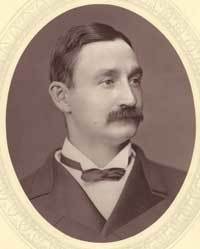
Frederick Burnaby
English adventurer, army officer, and balloonist. Died at Abu Klea, and is immortalised as the dead colonel in Henry Newbolt's "Vitaï Lampada".
Buy books on Amazon -

-

Martin Cruz Smith
AKA Simon Quinn, Nick Carter.
Buy books on Amazon
Martin Cruz Smith was an American writer of mystery and suspense fiction, mostly in an international or historical setting. He was best known for his series featuring Russian investigator Arkady Renko, ten novels as of 2025, who was introduced in 1981 with Gorky Park and appeared in Independence Square (2023) and Hotel Ukraine (2025). -
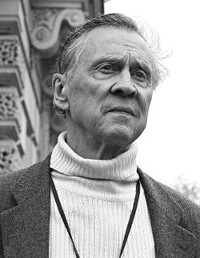
Peter Hopkirk
Peter Hopkirk was born in Nottingham, the son of Frank Stewart Hopkirk, a prison chaplain, and Mary Perkins. He grew up at Danbury, Essex, notable for the historic palace of the Bishop of Rochester. Hopkirk was educated at the Dragon School in Oxford. The family hailed originally from the borders of Scotland in Roxburghshire where there was a rich history of barbaric raids and reivers hanging justice. It must have resonated with his writings in the history of the lawless frontiers of the British Empire. From an early age he was interested in spy novels carrying around Buchan's Greenmantle and Kipling's Kim stories about India. At the Dragon he played rugby, and shot at Bisley.
Buy books on Amazon
Before turning full-time author, he was an ITN reporter and newsc -

Fitzroy Maclean
Major General Fitzroy Hew Royle Maclean, Bt, KT, CBE.
Buy books on Amazon
Graduate of Eton and subsequently King's College, University of Cambridge. Joined the Diplomatic Service in 1932. Posted to Paris from 1933-1937 and then the British Embassy to Moscow from 1937-1941.
Veteran of WWII. In 1941, he chose to enlist as a private in the Cameron Highlanders, but was commissioned a 2nd Lieutenant the same year. He was one of the earliest members of the elite SAS. By the end of the war, had risen to the rank of Brigadier. Maclean wrote several books, including Eastern Approaches, in which he recounted three extraordinary series of adventures: traveling, often incognito, in Soviet Central Asia; fighting in the Western Desert Campaign (1941-1943), where he specializ -
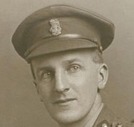
Reginald Teague-Jones
Reginald Teague-Jones MBE was a British political and intelligence officer. He was active in the Caucasus and Central Asia during the Russian Civil War. For the last 66 years of his life he was known as Ronald Sinclair.
Buy books on Amazon
Teague-Jones was born in Lancashire. He was brought up in the former Russian capital, St Petersburg. His father was a language teacher and died when Reginald was still a child. He was educated at a German-run school that specialized in languages where he learned French, German and Russian, and at Bedford School between 1905 and 1907. He later spent two years studying at King's College London, but left without taking a degree.
In 1910, at the age of 21, he joined the Indian Police and was soon transferred to the (British) India -

-

Frederick Burnaby
English adventurer, army officer, and balloonist. Died at Abu Klea, and is immortalised as the dead colonel in Henry Newbolt's "Vitaï Lampada".
Buy books on Amazon -

-
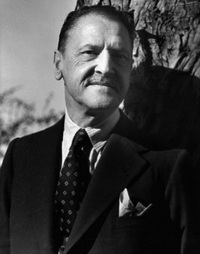
W. Somerset Maugham
William Somerset Maugham was born in Paris in 1874. He spoke French even before he spoke a word of English, a fact to which some critics attribute the purity of his style.
Buy books on Amazon
His parents died early and, after an unhappy boyhood, which he recorded poignantly in Of Human Bondage, Maugham became a qualified physician. But writing was his true vocation. For ten years before his first success, he almost literally starved while pouring out novels and plays.
Maugham wrote at a time when experimental modernist literature such as that of William Faulkner, Thomas Mann, James Joyce and Virginia Woolf was gaining increasing popularity and winning critical acclaim. In this context, his plain prose style was criticized as 'such a tissue of clichés' that one -
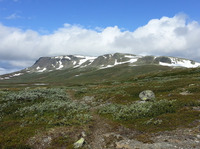
Ben Carlyle
Ben was born in Britain to a mother commissioned into the Royal Navy and a father serving with the United States Armed Forces. Soon after, the family moved to San Diego; whence, as just a toddler, Ben became acquainted with the water.
Buy books on Amazon
Before his teens, the family moved back to Britain, where Ben received the offer of a place at boarding school. From university, Ben set his sights on the ancient trading routes of Asia. Nearly a decade later, Ben returned to the United States, settling down on a smallholding that prides itself on minimising its environmental impact and maintaining a sustainable, self-sufficient lifestyle.
Long winter nights gave pause for reflection and time to gather his thoughts. Ben’s experiences and the voices of the friend -

Reginald Teague-Jones
Reginald Teague-Jones MBE was a British political and intelligence officer. He was active in the Caucasus and Central Asia during the Russian Civil War. For the last 66 years of his life he was known as Ronald Sinclair.
Buy books on Amazon
Teague-Jones was born in Lancashire. He was brought up in the former Russian capital, St Petersburg. His father was a language teacher and died when Reginald was still a child. He was educated at a German-run school that specialized in languages where he learned French, German and Russian, and at Bedford School between 1905 and 1907. He later spent two years studying at King's College London, but left without taking a degree.
In 1910, at the age of 21, he joined the Indian Police and was soon transferred to the (British) India